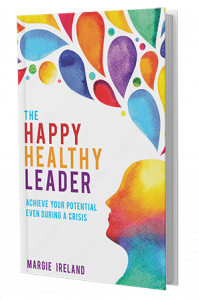Stress and Milkshakes. What is the learning here about stress?
Confession. I am one of those people that stands in supermarkets and reads the ingredients on the back of products. I also do this with skin care products. In my career coaching experience, I have found most people have some kind of topic or interest they can get a bit “nerdy” about. For me it is ingredients. This interest has resulted in me forming a belief (based on experience) that labels on products may not be consistent with actual ingredients. So when I came across this study about how we perceive what we consume based on the label, it got my attention. More importantly this Milkshake study lead to a subsequent study regarding how our beliefs regarding stress can increase or decrease the experience of stress.
Alia Crum, a Yale Psychology student was fascinated by the placebo effect. An example of the placebo effect is when a participant in a psychological study is given a sugar pill instead of a pain killer but has pain relief as they believed they were given the pain medication. Ms Crum extended this idea in relation to our beliefs regarding mindset and hunger using Milkshakes!

One group received a Milkshake labelled “Sensible – 140 calorie shake” the second group received a Milkshake labelled “Indulgent – 620 calorie shake”. Blood samples were taken of both groups, on 3 separate occasions (before the study, just prior to having the shake and then just after) to measure their ghrelin levels. Ghrelin is commonly referred to as the “hunger hormone”, as it stimulates appetite. After we eat a meal ghrelin levels typically reduce when we feel we are full (i.e., reached satiety).

The “Indulgence” group produced a dramatically steeper decline in ghrelin after consuming the shake, whereas the “Sensible” group produced a relatively flat ghrelin response.
However, both groups were given the exact same Milkshake! All participants were given a 380 calorie Milkshake.
Participants’ sense of feeling satisfied was consistent with what they believed they were consuming rather than the actual nutritional value of what they consumed. This belief also influenced their grehlin levels (i.e., created a physical response).
CONCLUSIONS: Our mindset and beliefs (“I have indulged”), can influence our experience (“I no longer feel hungry”).
Extend this idea to how you perceive stress? Ms Crumb did another study exploring this. Not quite as interesting as using Milkshakes but confirming the same theme.
People who believed stress as being negative experienced more stress than those who believed stress as being an opportunity to learn or improve.

What is your Mindset when something stressful occurs? How do you respond?
Here are some simple strategies to try to reduce your stress response
- Take 3 slow deep breaths – “In for 3, and out for 3”.
- Excuse yourself from the situation for a few moments to take the 3 slow breaths! My favourite is saying you need to pee!
- Recognise the stress, what is causing it and write it down. Just write whatever is in your head and look at it later. Heaps of research that supports writing as a way of helping us stand back from unhelpful thoughts.

- Look out the window or walk outside. Look at the sky. No matter the weather, the sky continues to be, even after the biggest of storms. You are like the sky. Your experience of stress will also soon pass, as does a bad storm.

- Be curious. What is it about this situation that is so stressful? Is it just your automatic response, and all you need to do is seek further information first before doing anything? Ask questions.
- Learn Mindfulness. My favourite which really encompasses all of the above. What is Mindfulness, and how does it help us? Check this out
Or why not just go outside for a walk and buy a Milkshake! Perhaps not the most healthy, but hey I had to suggest it.
I hope this information was of value. If you would like to know more about how to better manage stress why not book a 30 minute phone or video consult with me, your first one is on me. Book here
Warmly, Margie Ireland
Leadership Coach | Psychologist | Speaker
Margie Ireland is the author of The Happy Healthy Leader – how to achieve your potential even during a crisis. Margie is a registered Psychologist, Leadership Coach and Workshop Facilitator, highly sought after to help Leaders and their teams navigate stress and change with healthier coping strategies, leading to happier, healthier and high-performing teams. For more information visit www.margieireland.com





















